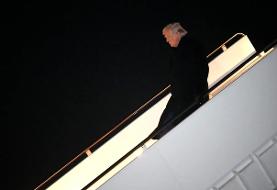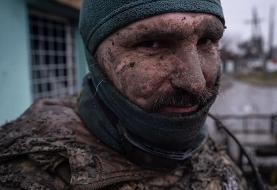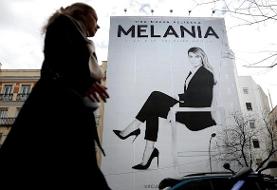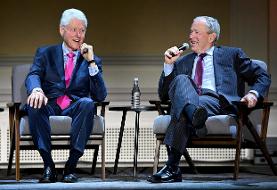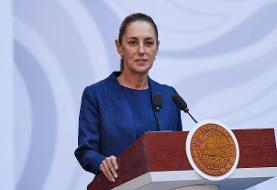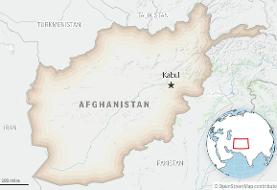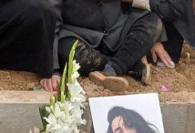Once Upon a Time: Courting of Hollywood blonde by Shah of Iran
In June 1999, the American Film Institute ranked Grace Kelly in their list of top female stars of American cinema. In 1993, she became the first U.S. actress to appear on a U.S. postage stamp. But many are not aware that she had a chance to become the Queen of Iran.
Grace Kelly was born in 1929 to wealthy parents in Philadelphia. After gaining acceptance to the American Academy of Dramatic Arts in New York, Kelly moved to Manhattan and supported her studies as a model. Then she moved to Southern California, won television parts, and soon offers from Hollywood. She proved to be the ideal, elegant blonde actress Alfred Hitchcock had been searching for, so she began a string of projects for the director. She won an Oscar for Best Actress in 1955.

Grace Kelly had a series of romances with older, high-profile men like Gary Cooper, Clark Gable, Bing Crosby and Mohammad Reza Pahlavi, Shah of Iran.
The following story about Grace and Shah is mainly extracted from "True Grace: The Life and Times of an American Princess" by Wendy Leigh:
The Shah of Iran and Grace met at the Waldorf toward the end of 1949, when the thirty-year-old Shah arrived in America on an official visit. The Shah and Grace dated at least six times, probably overlapping with Shah's marriage to Soraya. Although Shah was ruling Iran since 1941, he had no intention of hiding his new American paramour. To the contrary, he invited Grace to accompany him to the opera, amid great pomp and circumstance.

He was besotted by her and demonstrated his feelings in the way he understood – presenting her with three pieces of Van Cleef & Arpels jewelry: a gold birdcage housing a diamond and sapphire bird, all fashioned into a perfect pin; a gold vanity case with a clasp set with thirty-two diamonds; and a gold bracelet with an intricate pearl and diamond face.
Grace wasn’t about to let herself be beguiled – even momentarily – by the jewels, and she may have intended to return them, but in the end, her resolve faltered and she kept them. She stopped short, however, of accepting the Shah’s proposal of marriage, which would have made her Empress of Iran.
Her heart and mind were set on an acting career, and she was sensible enough to know that if she accepted the Shah’s proposal she would have to retire from acting and be compelled to convert to Islam (although she was assured that she could practice her Catholic faith privately). She declined the King's proposal.
Grace married Prince Rainier of Monaco in 1956. After Kelly's wedding, Prince Rainier banned the screening of Kelly's films, exactly what she had feared Shah of Iran would do. Even if Prince Rainier was jealous of his wife’s past romance with the Shah of Iran, by 1971 his jealously had subsided sufficiently for him to accept the Shah’s invitation for them both to attend the gala celebrations at Persepolis marking the two thousandth anniversary of the Pahlavi dynasty.

Afterward, despite the two decades that had passed since their brief romance and the fact that the brutality of the Shah’s regime was common knowledge, Grace fiercely defended the Shah. In his diary, Richard Burton described traveling in 1971 with Grace, Rainier, and Elizabeth Taylor to the Rothschild Ball at their Ferrieres estate, "Grace and E chatted away at the back of the car while I sat in front with the driver... everybody talked freely. Grace went into a blow by blow description of the Shah’s famous or infamous party. Grace defended its extravagance with extraordinary obtuseness though neither of us attacked it. It was meant, she said, as a tribute to the people of Persia and as self-advertisement for the Shah’s magnificent governing which was bringing literacy to the illiterate and hygiene to the unwashed and culture to the people. She described the Shah as a marvelous man and once called him a great man which was going a bit too far. She said how monstrous it was the Western press to be so vulgarly cynical of the whole show, all of them she said she knew for a fact were writing their stuff before the thing had really got going."
In 1982, Princess Grace lost control of the vehicle in which she and her daughter were traveling, and Kelly lingered in a coma for barely 24 hours, before she died at the age of 53. It was later announced that the Princess had suffered a stroke which had led to the crash although she was seemingly in perfect health. The sudden death has resulted in conspiracy theories about causes of the accident.
Kelly was a woman known for her poise and elegance. But in private, she was not a Saint. Grace's infidelities after her marriage were said to be a reaction to her husband's affairs. "I know my husband has affairs with other women," Grace once confided to her hairdresser. "That's very frustrating to me and makes me very unhappy."
Frank Sinatra's affair with Princess Grace lasted for years, they even had a lovenest in a secluded French villa in Cap Ferrat, according to the book. Also on the list of alleged extramarital lovers are actor Tony Curtis, US tennis ace Sidney Wood, and musician Richard Boccelli. Famed Hollywood director Alfred Hitchcock once told screenwriter Bryan Mawr: "She f*cked everyone!" (meaning she slept with everyone!).
Related:
- Soraya, the Sad Iranian Princess in movie clips
Related to Cinema:
- Did George Clooney travel to Iran?
- Norouz animation airs in France (Video)
- Affleck thanking friends in Iran and other Oscar highlights (video)
- Inside Iranian Cinema, Report from Tehran (Video)
- Fat Shaker, Iranian film premiered at Sundance and Rotterdam
- Neshat, Golshifteh, Kiarostami and Panahi in International film festivals
- WikiLeaks' founder Assange discusses plots against Iran (Video)
- Turkish TV series about terrorism on Iranian border
- Ben Affleck's traumatic memory with Persian-speaking actor!
- Mercedes in bikini: Pride or shame for Iranian-American woman?
- Fatemeh Motamed Aria and Behrouz Vosoughi in the news
- Shirin Neshat's next film project: Iconic Egyptian singer Umm Kalthoum
- Leila Hatami: Jury member, 2012 Rome International Film Festival
- "The Physician" glorifies Persian Islamic progressive era
- Life of underground Iranian dancer captured in Desert Dancer












